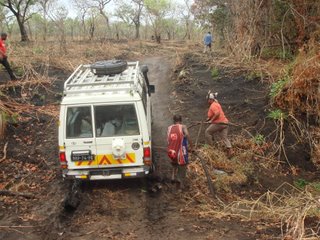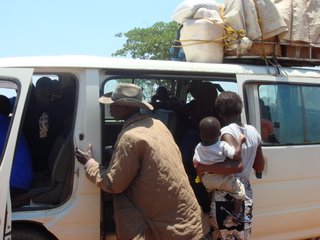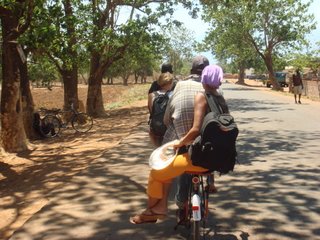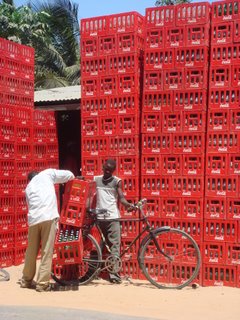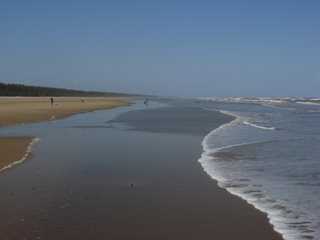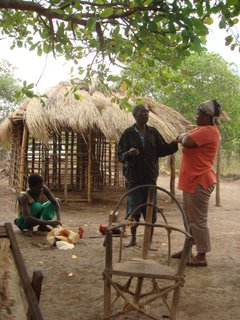
The cockerels Adelson bought were subsequently left closed in an outhouse for a week 'to accustom them to their new surroundings' and a few days ago were killed, having never been let out. They are now in the freezer. You know I'm not precious about animals, but i did feel that this was a bit unfair.
Other than the trip to Muzo, Stebba and I have been getting accustomed to life in Maganja da Costa. We are locked in a constant battle with ants, who get inside bread and attack our special biscuit supply. We've also had a scorpion, lots of spiders, strange flying creatures, something that looked like jimminy cricket (scarily human-like), and more cockroaches. You'll be glad to know that I'm not as freaked out by them as before, although was disgusted to see 2 cannibal cockroaches eating a friend of theirs, who was still alive. I have killed lots of insects. Pablo (an ActionAid person and our neighbour) constantly tells us off for destroying the circle of life, which we feel a little hypocritical coming from someone who enjoys killing chickens and who's eyes light up when they talk about blood spilling from a chicken's neck.
Stefania knocks on the bathroom door to scare away spiders etc and periodically wakes up throughout the night to shine her torch on the walls and floor to check for animals. I must confess that i look under the toilet seat for poisonous spiders and other things.
Other achievements worth noting. Stebba has climbed the mango tree outside the house (standing on my head to get up there). I carried a bucket of water on my head, much to the hilarity of the 50 people watching me. It really isn't easy, especially when you haven't been carrying heavy things on your head since you were 5.

We're in the process of buying a house and we're writing a proposal for a new women's project in the district(more about that next time).
